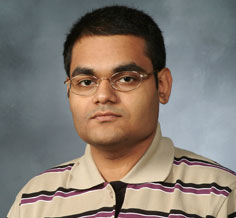What influenced your decision to attend Weill Cornell for your graduate school education?
During my interview at Weill Cornell, I had the opportunity to sit in on a class. I saw the faculty and students discussing papers vigorously and without “holding back.” The scientific environment at Weill Cornell felt the liveliest among the many top-ranked graduate schools that I visited over two months of interviewing. The biomedical curriculum and research here accommodate an interdisciplinary perspective and diverse academic backgrounds. This was an important factor to me. While pursuing my undergraduate degree in research biology, most of my classes were math and physics courses.
Do you recall any experiences that confirmed Weill Cornell was the best place for your graduate studies?
While discussing some newly acquired data with faculty members at a departmental retreat in 2011, I realized the need to further clarify the mechanistic significance of the data. I was able to accomplish this with a set of computer simulations and ultimately won a national research prize for this piece of research. The interactions with the faculty tangibly improved my research and led to a significant professional achievement.
What was your proudest accomplishment at Weill Cornell?
Winning the Biophysical Society's 2012 Student Research Achievement Award in molecular biophysics.
What do you remember most fondly from your time at Weill Cornell?
At Weill Cornell, I found a very supportive environment to pursue unconventional research ideas. I was looking at how membrane-embedded drug targets interact with the membrane, with a molecular-level perspective that differed considerably from the view prevalent in the literature for over two decades. Far from dissuading me, my thesis advisor, Professor Harel Weinstein, enthusiastically helped me in all aspects of my research. I could count on other professors as well to be very forthcoming when I discussed with them specific points about my research.
How did Weill Cornell help prepare you for and shape your career?
Weill Cornell gave me the confidence to look at problems in a new light, helped to develop problem-solving skills and, with the amalgam of my studies in biology and background in math/physics, prepared me to pursue a career in drug discovery. Working together with colleagues at Schrödinger, I am already impacting drug discovery programs with new methodology rooted in a perspective and approach very different from that of previously available methods. I expect that such innovation will become increasingly important in the next few years, due to the realization and acknowledgement that there is a need to accelerate the stagnating drug discovery process.
What advice would you offer to an incoming student?
For myself and my fellow classmates, finding a lab that was a good match for their research personality and not just research interests was key to remaining happy and motivated over the entire course of a PhD. For example, some prefer to be handed well-defined problems to work on, whereas others prefer to tackle open-ended problems or go off in new research directions. Some students prefer interacting frequently with a knowledgeable PI who comes by regularly to discuss the latest results, whereas others prefer the space to drive projects more independently. Make sure to take advantage of the diverse offering at Weill Cornell and to choose a lab that matches both your research interests and personality.

